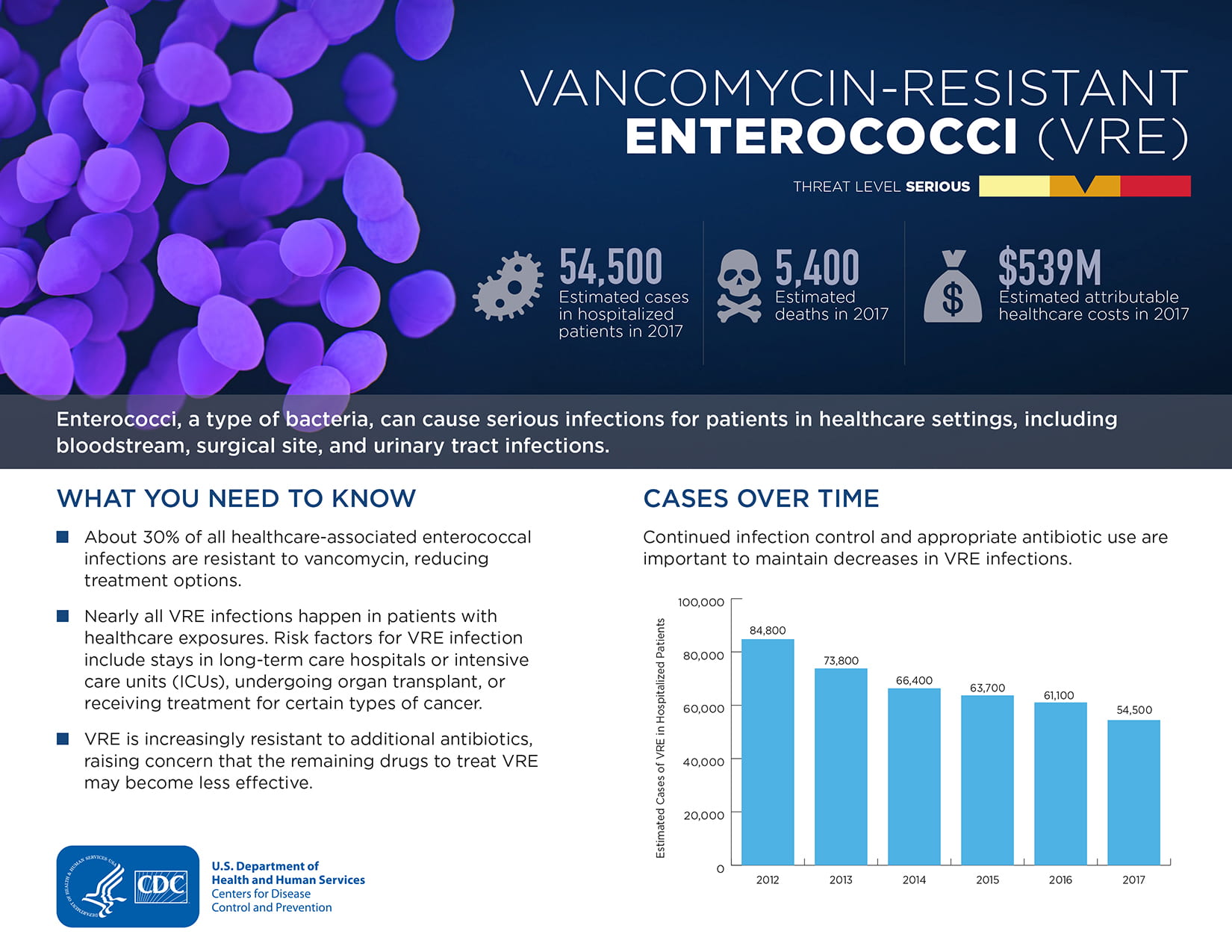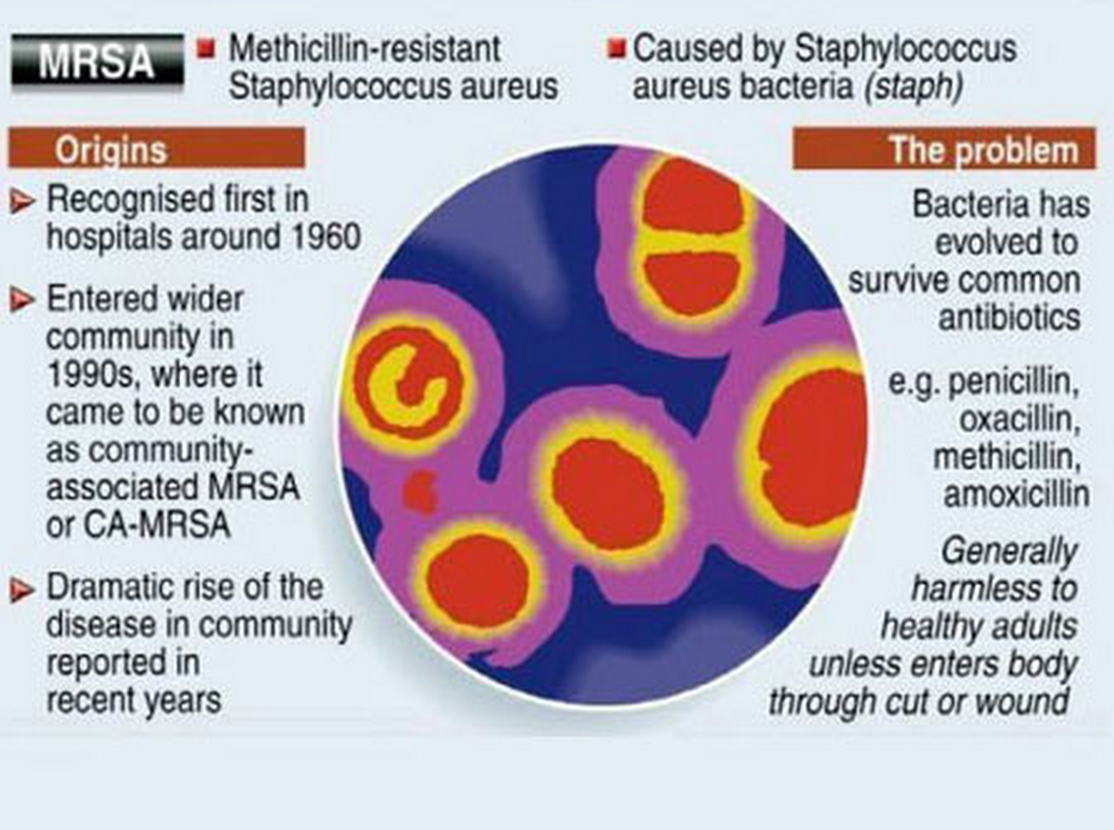Vre Fact Sheet
Vre Fact Sheet - If a person has an infection caused by vre, such as a urinary tract infection or blood infection, it may be. Enterococci are bacteria (germs) that are normally present in the human intestines and in the female genital tract, and are often found in the. Web infections are resistant to vancomycin, reducing treatment options. Nearly all vre infections happen in patients with healthcare exposures.
Nearly all vre infections happen in patients with healthcare exposures. Web infections are resistant to vancomycin, reducing treatment options. Enterococci are bacteria (germs) that are normally present in the human intestines and in the female genital tract, and are often found in the. If a person has an infection caused by vre, such as a urinary tract infection or blood infection, it may be.
Enterococci are bacteria (germs) that are normally present in the human intestines and in the female genital tract, and are often found in the. If a person has an infection caused by vre, such as a urinary tract infection or blood infection, it may be. Nearly all vre infections happen in patients with healthcare exposures. Web infections are resistant to vancomycin, reducing treatment options.
Drugresistant superbug deploys sentinels to warn of attack
If a person has an infection caused by vre, such as a urinary tract infection or blood infection, it may be. Nearly all vre infections happen in patients with healthcare exposures. Web infections are resistant to vancomycin, reducing treatment options. Enterococci are bacteria (germs) that are normally present in the human intestines and in the female genital tract, and are.
AEMO Fact sheet Explaining electricity reserve levels
Enterococci are bacteria (germs) that are normally present in the human intestines and in the female genital tract, and are often found in the. Web infections are resistant to vancomycin, reducing treatment options. If a person has an infection caused by vre, such as a urinary tract infection or blood infection, it may be. Nearly all vre infections happen in.
Number of VRE cases detected (a) and VRE incidence per day (b) from
Web infections are resistant to vancomycin, reducing treatment options. Nearly all vre infections happen in patients with healthcare exposures. If a person has an infection caused by vre, such as a urinary tract infection or blood infection, it may be. Enterococci are bacteria (germs) that are normally present in the human intestines and in the female genital tract, and are.
SNF Infection Control Guidelines for VRE Cheat Sheet by Davidpol
If a person has an infection caused by vre, such as a urinary tract infection or blood infection, it may be. Web infections are resistant to vancomycin, reducing treatment options. Enterococci are bacteria (germs) that are normally present in the human intestines and in the female genital tract, and are often found in the. Nearly all vre infections happen in.
MRSA and VRE Information for Patients/Residents — MiddlesexLondon
If a person has an infection caused by vre, such as a urinary tract infection or blood infection, it may be. Web infections are resistant to vancomycin, reducing treatment options. Nearly all vre infections happen in patients with healthcare exposures. Enterococci are bacteria (germs) that are normally present in the human intestines and in the female genital tract, and are.
VRE — MiddlesexLondon Health Unit
Web infections are resistant to vancomycin, reducing treatment options. Enterococci are bacteria (germs) that are normally present in the human intestines and in the female genital tract, and are often found in the. If a person has an infection caused by vre, such as a urinary tract infection or blood infection, it may be. Nearly all vre infections happen in.
Outpatient Staff VRE Brochure
If a person has an infection caused by vre, such as a urinary tract infection or blood infection, it may be. Enterococci are bacteria (germs) that are normally present in the human intestines and in the female genital tract, and are often found in the. Web infections are resistant to vancomycin, reducing treatment options. Nearly all vre infections happen in.
Std Mouth Symptoms Pictures
Web infections are resistant to vancomycin, reducing treatment options. Enterococci are bacteria (germs) that are normally present in the human intestines and in the female genital tract, and are often found in the. If a person has an infection caused by vre, such as a urinary tract infection or blood infection, it may be. Nearly all vre infections happen in.
VRE Resistant Enterococcus Fact Sheet Spanish F O L L E T
Web infections are resistant to vancomycin, reducing treatment options. If a person has an infection caused by vre, such as a urinary tract infection or blood infection, it may be. Nearly all vre infections happen in patients with healthcare exposures. Enterococci are bacteria (germs) that are normally present in the human intestines and in the female genital tract, and are.
Types Of Hospital Machines Design Talk
Web infections are resistant to vancomycin, reducing treatment options. If a person has an infection caused by vre, such as a urinary tract infection or blood infection, it may be. Enterococci are bacteria (germs) that are normally present in the human intestines and in the female genital tract, and are often found in the. Nearly all vre infections happen in.
Nearly All Vre Infections Happen In Patients With Healthcare Exposures.
Web infections are resistant to vancomycin, reducing treatment options. If a person has an infection caused by vre, such as a urinary tract infection or blood infection, it may be. Enterococci are bacteria (germs) that are normally present in the human intestines and in the female genital tract, and are often found in the.









